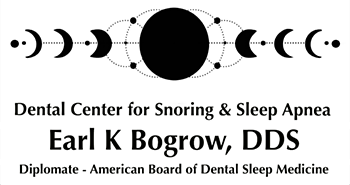Dental Health and Getting Enough Sleep

Life can be hectic, can’t it? Between handling work, family, friends, and the draw of social media downtime is minimal. Because everyone is always “on” there isn’t much time to relax. That makes it difficult to get a good night’s sleep consistently. Some people wear their ability to continue without sleep like a badge of honor. It’s a societal badge of success. However, lacking sleep can be dangerous to your health and even to your dental health.
Lack of Sleep’s Connection to Periodontitis
In recent years there have been several studies that have discovered a link between a lack of sleep and the onset of periodontitis. This is a condition where deep pockets develop between the teeth and the gums. These pockets are harmful because they cause the teeth to become loose and move freely. This also affects the bone that’s supposed to be holding the teeth in place.
One study conducted by the Osaka University Graduate School of Medicine looked at different lifestyle factors of modern workers. Dietary, sleep and exercise habits were observed in 200 workers. Stress levels were also under consideration in this study. The results showed that workers who got adequate amounts of sleep on a nightly basis were at less risk for developing periodontitis than those who got less than seven or eight hours of sleep each night.
Link Between Sleep and Inflammation
What does sleep have to do with inflammation? Getting inadequate amounts of sleep increases inflammation in your body and in the gums. The body tends to produce more inflammatory hormones if it’s not well-rested. Gum inflammation often leads to gingivitis and eventually to periodontitis.
There are also other health dangers of having high levels of inflammation. It can also increase the risk of heart disease, stroke, obesity, and possibly even Alzheimer’s disease. Lack of sleep can also negatively impact cognitive abilities making it difficult to make good decisions. Most aspects of a person’s health are impacted by sleep patterns.
How Hard is it To Get a Good Night’s Sleep?
One of the first myths that need to be dispelled is that it’s all about the number of hours of sleep you get. What is more important is that you get good quality sleep. To ensure your teeth and gums are healthy you’ll need seven to eight hours of solid sleep each night. If you find yourself getting up during the night, or if you toss and turn a lot, you won’t reap the benefits. Here are a few tips you can use to help get better sleep:
- Prioritize Sleep. It’s essential for you to understand the importance of good sleep and making it a priority. Otherwise, you won’t see the importance of making changes. Sleep is more important than making sure the bathrooms and kitchen are sparkling clean before getting to bed. It is much more important for you to be well-rested and ultimately healthy.
- Sleep Routines. Set a sleep schedule that works for you. Try going to bed a few minutes earlier each night until you can figure out what amount of sleep you need to feel rested. After you get used to the routine, your body will adjust and relax when it’s time to go to bed.
- Sleep Apnea. If you suspect you are suffering from sleep apnea, contact a sleep professional and request a sleep study. You may need a CPAP machine to help you get a good night’s sleep.
- Dental Issues. Grinding your teeth or clenching them can interrupt sleep. Discuss it with your dentist and ask about appliances that can be worn at night to help you get better rest.
- Be consistent. Going to bed and getting up at the same time every day helps your body get used to your sleep routine. It helps your body keep its natural circadian rhythms.
Dental Health and Sleep
Getting more quality sleep can be beneficial for improving dental health. But you’ll also need to maintain good oral hygiene like brushing and flossing regularly. See your dentist right away if you have bleeding gums, tooth pain, or loose teeth. Having cavities can lead to gingivitis and periodontitis. Make sure to keep your regular checkups.
Contact a Southfield, MI Dental Sleep Specialist
If you suspect your difficulty getting adequate sleep is due to sleep apnea or other sleep disorders, contact Dr. Earl Bogrow at the Southfield, MI Sleep Center. Let us help you improve your health by improving your sleep.









